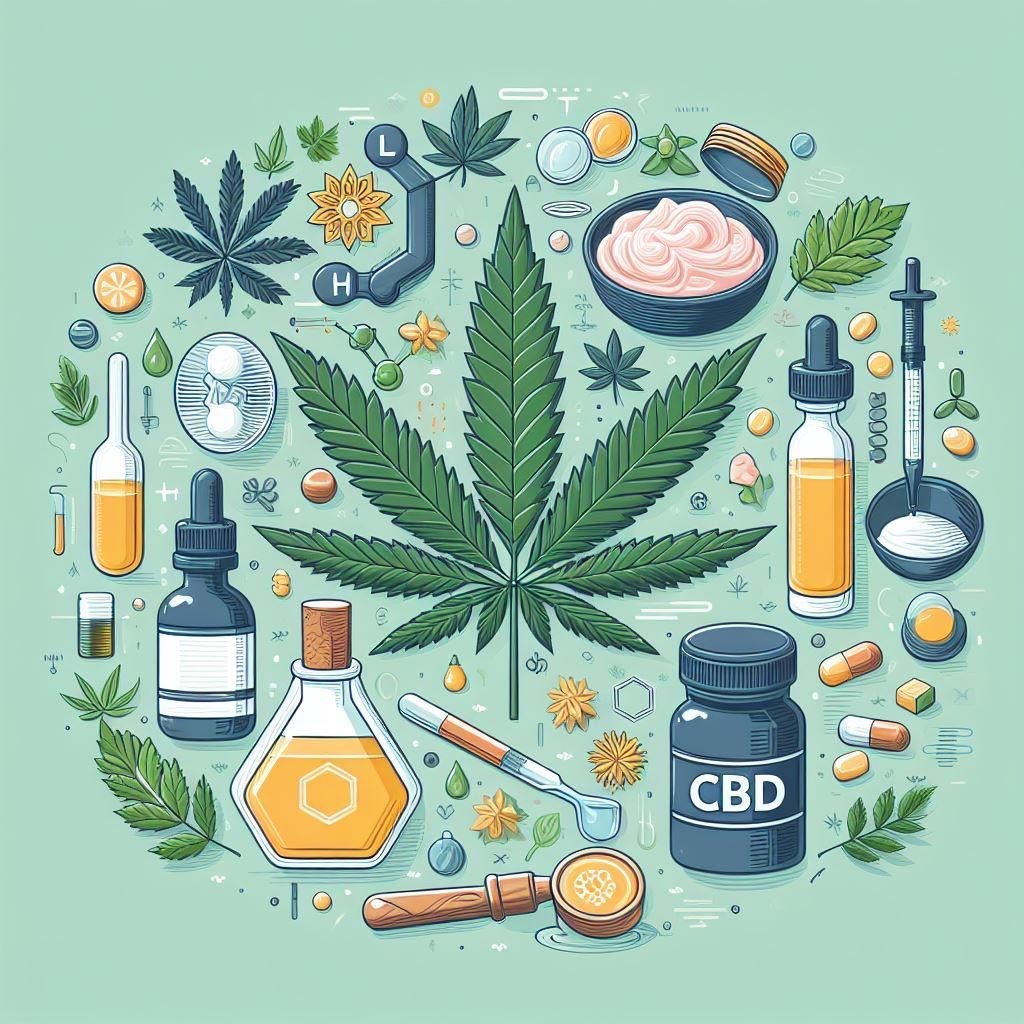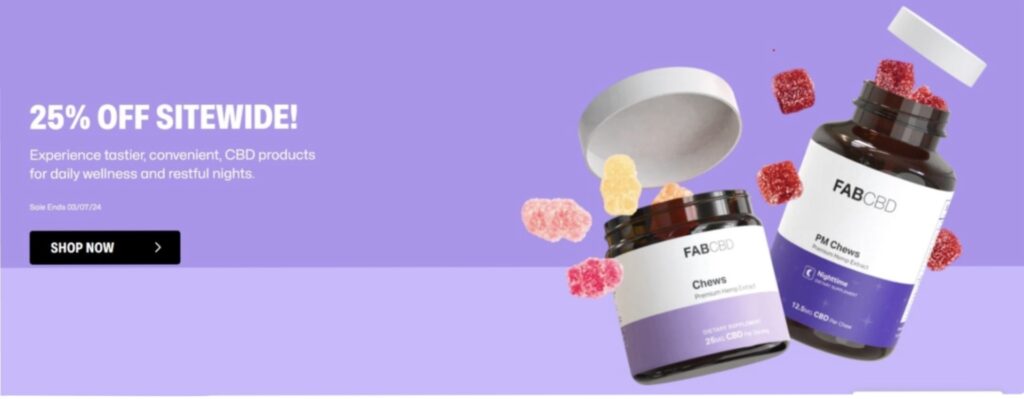Table of Content
Ultimate Guide to CBD: Unlocking Healing Power for Holistic Health.
Introduction:
CBD, short for cannabidiol, is a naturally occurring compound found in the cannabis plant. Unlike its counterpart THC, CBD is non-psychoactive, meaning it doesn’t produce the “high” typically associated with cannabis use.
CBD has been used for centuries for its potential health benefits, but it has gained significant popularity in recent years as a natural health supplement. With its origins rooted in ancient medicinal practices, CBD is now being recognized for its therapeutic properties and ability to promote overall well-being without the side effects of traditional medications.
As more research is conducted on the potential benefits of CBD, its popularity as a natural remedy for various health conditions continues to grow.
Health Benefits:
CBD has been shown to offer a wide range of potential health benefits, making it a versatile and natural remedy for various conditions. Research suggests that CBD may have pain-relieving properties, making it a promising option for individuals dealing with chronic pain, arthritis, migraines, and other inflammatory conditions. Additionally, CBD is known for its anti-inflammatory effects, which can help reduce swelling and discomfort in the body.
Furthermore, CBD has gained attention for its potential anti-anxiety and anti-depressant properties, with studies indicating that it may help alleviate symptoms of anxiety disorders, depression, and stress-related conditions. Research has shown that CBD interacts with the body’s endocannabinoid system, which plays a crucial role in regulating mood, emotions, and stress responses.
Researches:
Several studies have provided evidence to support these claims, including a 2019 study published in the Journal of Clinical Psychology, which found that CBD significantly reduced anxiety levels in participants with social anxiety disorder. Another study published in the European Journal of Pain in 2016 reported that CBD topicals could help alleviate pain and inflammation in arthritis patients.
Overall, the potential health benefits of CBD are supported by a growing body of research, highlighting its effectiveness as a natural and holistic approach to promoting overall health and well-being.
Conditions CBD May Help With:
CBD has shown promise in assisting with various medical conditions, offering a natural alternative for individuals seeking relief from debilitating symptoms. One of the most well-known uses of CBD is in the treatment of epilepsy, particularly in children with rare forms of epilepsy that are resistant to conventional medications. Studies have indicated that CBD can help reduce the frequency and severity of seizures in these patients, leading to the FDA approval of a CBD-based medication for epilepsy treatment.
Cancer Treatment:
In the realm of cancer treatment, CBD has garnered attention for its potential anti-cancer properties. Research suggests that CBD may help inhibit the growth of cancer cells and induce apoptosis, or cell death, in tumor cells. While more studies are needed to fully understand the implications of CBD in cancer treatment, initial findings are promising and have sparked interest in exploring CBD as a complementary therapy for cancer patients.
Neurodegenerative diseases:
Alzheimer’s and Parkinson’s, are also areas where CBD may offer benefits. Studies have shown that CBD has neuroprotective properties, meaning it can help protect and preserve brain cells from damage and degeneration. This has implications for slowing the progression of neurodegenerative diseases and improving cognitive function in affected individuals.
Overall, research findings in these areas suggest that CBD may hold significant potential for assisting with a range of medical conditions, offering a natural and holistic approach to managing symptoms and improving quality of life for those affected by epilepsy, cancer, neurodegenerative diseases, and more.
Types of CBD Products:
There are various types of CBD products available on the market, each offering unique methods of consumption and potential benefits. Some of the most common types of CBD products include:
1. CBD Oils:
CBD oils are one of the most popular forms of CBD products. They typically come in a dropper bottle for sublingual administration, where the oil is placed under the tongue for faster absorption. CBD oils can also be added to food or beverages. They are known for their fast-acting effects and versatility in dosing.
2. CBD Capsules:
CBD capsules are pre-measured doses of CBD in a convenient pill form. They are easy to incorporate into a daily routine and provide consistent dosing. CBD capsules are ideal for those who prefer a discreet and tasteless option for consuming CBD.
3. CBD Edibles:
CBD edibles include a wide range of products such as gummies, chocolates, and baked goods infused with CBD. They offer a tasty and enjoyable way to consume CBD, making them a popular choice for those who want a more palatable option. CBD edibles typically take longer to take effect compared to oils or capsules, as they need to be digested first.
4. CBD Topicals:
CBD topicals are products that are applied directly to the skin, such as creams, lotions, balms, and salves. They are commonly used for localized relief of pain, inflammation, and skin conditions. CBD topicals are absorbed through the skin and can be beneficial for targeting specific areas of discomfort.
5. CBD Vapes:
CBD vapes involve inhaling CBD-infused vapor using a vape pen or vaporizer. Vaping allows for quick absorption of CBD into the bloodstream, providing fast-acting relief. However, it is important to note that vaping may not be suitable for everyone, especially those with respiratory issues.
Each type of CBD product offers unique benefits and methods of consumption, allowing individuals to choose the option that best suits their preferences and needs. It is essential to consult with a healthcare professional before incorporating CBD into your wellness routine to determine the most appropriate product and dosage for your specific health concerns.
How to Use CBD:
Incorporating CBD into your daily routine can be a beneficial addition to your wellness regimen, but it’s essential to use CBD responsibly and safely. Here are some tips on how to use CBD effectively:
1. **Start Low and Go Slow**:
When beginning with CBD, start with a low dosage and gradually increase it until you find the optimal dose that works for you. This approach allows you to gauge how your body responds to CBD and helps minimize the risk of adverse effects.
2. **Consult with a Healthcare Professional**:
Before using CBD, it’s recommended to consult with a healthcare professional, especially if you are taking other medications or have underlying health conditions. They can provide personalized guidance on dosing and potential interactions with other medications.
3. **Follow Product Instructions**:
Always follow the dosing instructions provided on the CBD product you are using. Different products and formulations may have varying concentrations of CBD, so it’s crucial to adhere to the recommended dosage.
4. **Consider the Method of Administration**:
Choose a CBD product and method of administration that aligns with your preferences and lifestyle. Whether you prefer sublingual oils, capsules, edibles, topicals, or vapes, select a product that best suits your needs.
5. **Monitor Your Response**:
Pay attention to how your body responds to CBD. Keep track of any changes in your symptoms, mood, or overall well-being to determine the effectiveness of CBD for your specific concerns.
6. **Be Aware of Potential Side Effects**:
While CBD is generally considered safe, some individuals may experience side effects such as dry mouth, dizziness, fatigue, or changes in appetite. If you notice any adverse effects, discontinue use and consult with a healthcare provider.
7. **Quality Matters**:
Choose high-quality CBD products from reputable brands that undergo third-party testing for purity and potency. This ensures that you are receiving a safe and effective product.
8. **Consistency is Key**:
For optimal results, incorporate CBD into your daily routine consistently. Consistent use may help maintain steady levels of CBD in your system and improve its effectiveness over time.
By following these tips and using CBD responsibly, you can maximize the potential benefits of CBD while minimizing the risk of adverse effects. Remember that individual responses to CBD may vary, so it’s essential to listen to your body and adjust your dosage as needed to achieve the desired effects.
Legal Considerations:
The legal status of CBD can vary depending on the state or country you are in, as regulations surrounding CBD can differ significantly. Here are some key points to consider regarding the legality of CBD:
1. **United States**:
In the United States, the legal status of CBD is complex and can vary at the federal, state, and local levels. The 2018 Farm Bill legalized hemp-derived CBD products containing less than 0.3% THC on a federal level. However, individual states may have their own laws and regulations regarding the sale and use of CBD products. It’s essential to research and understand the specific laws in your state before purchasing or using CBD products.
2. **International**:
CBD laws and regulations can also vary widely in other countries. Some countries have legalized CBD for medical or recreational use, while others may have strict restrictions or outright bans on CBD products. Before traveling internationally with CBD products, it’s crucial to research the laws of the destination country to avoid any legal issues.
3. **Quality and Compliance**:
When purchasing CBD products, it’s important to ensure that the products comply with local regulations and quality standards. Look for products that have been tested by third-party laboratories for purity and potency to ensure you are getting a safe and effective product.
4. **THC Content**:
Be aware of the THC content in CBD products, as products containing more than the legal limit of THC may be considered illegal in some jurisdictions. Always check the label or product documentation to confirm the THC content and ensure compliance with local laws.
5. **Age Restrictions**:
Some states and countries may have age restrictions for purchasing CBD products. Make sure to verify the age requirements in your area before buying CBD products, especially if you are under the legal age of consumption.
6. **Medical Use**:
In some regions, CBD may be available for medical use with a prescription or recommendation from a healthcare provider. If you are considering using CBD for medical purposes, consult with a healthcare professional to ensure compliance with local regulations and obtain proper guidance on dosing and usage.
It’s important to stay informed about the legal status of CBD in your area and adhere to local regulations to avoid any legal issues. By being aware of the laws and regulations surrounding CBD, you can make informed decisions when purchasing and using CBD products.
Choosing Quality CBD Products:
When choosing CBD products, it’s essential to ensure you are selecting high-quality products that are safe and effective. Here are some tips to help you choose quality CBD products:
1. **Check the Label**:
Look for clear and accurate labeling on CBD products. The label should include information such as the CBD content per serving, THC content (if any), ingredients, and any additional information or warnings. Avoid products with unclear or misleading labeling.
2. **Look for Full-Spectrum or Broad-Spectrum CBD**:
Full-spectrum CBD products contain a range of cannabinoids, terpenes, and other beneficial compounds from the cannabis plant, providing what is known as the entourage effect. Broad-spectrum CBD products contain multiple cannabinoids but are THC-free. These types of CBD products are believed to be more effective than products containing CBD isolate.
3. **Check for Third-Party Lab Testing**:
Reputable CBD brands will often have their products tested by third-party laboratories to ensure quality, potency, and purity. Look for products that have a certificate of analysis (COA) from an independent lab that confirms the CBD content, THC content, and absence of contaminants like pesticides, heavy metals, and mold.
4. **Research the Brand**:
Choose CBD products from reputable and transparent brands that prioritize quality and customer safety. Look for brands that provide information about their sourcing practices, extraction methods, and testing processes. Customer reviews and feedback can also be helpful in determining the credibility of a brand.
5. **Check the Extraction Method**:
The extraction method used to obtain CBD from the hemp plant can impact the quality of the final product. CO2 extraction is considered one of the cleanest and most efficient methods for extracting CBD, preserving the plant’s beneficial compounds without the use of harmful solvents.
6. **Avoid Unrealistic Health Claims**:
Be wary of CBD products that make exaggerated health claims or promise miraculous results. While CBD has potential health benefits, it is not a cure-all and should not be marketed as such. Look for products that provide realistic information about the potential benefits and limitations of CBD.
7. **Consider Product Type**:
CBD is available in various forms, including oils, tinctures, capsules, edibles, topicals, and more. Consider your preferences and intended use when selecting a CBD product. Choose a product that aligns with your needs and lifestyle.
By following these tips and doing thorough research, you can select high-quality CBD products that are safe, effective, and meet your individual needs. Remember to consult with a healthcare provider before starting any new CBD
Conclusion:
In summary, when choosing CBD products, it’s important to prioritize quality and safety by checking labels, looking for third-party lab testing, selecting reputable brands, and considering factors such as extraction methods and product types. By following these guidelines, you can ensure you are purchasing high-quality CBD products that are effective and safe.
Incorporating CBD into your green life journey can offer potential health benefits, such as relief from pain, anxiety, inflammation, and more. With its natural origins and promising therapeutic properties, CBD can be a valuable addition to your wellness routine. Remember to consult with a healthcare provider before starting any new CBD regimen to ensure it is suitable for your individual needs. Embrace the power of CBD and discover the benefits it can bring to your life.
Sponsored
Read About:













